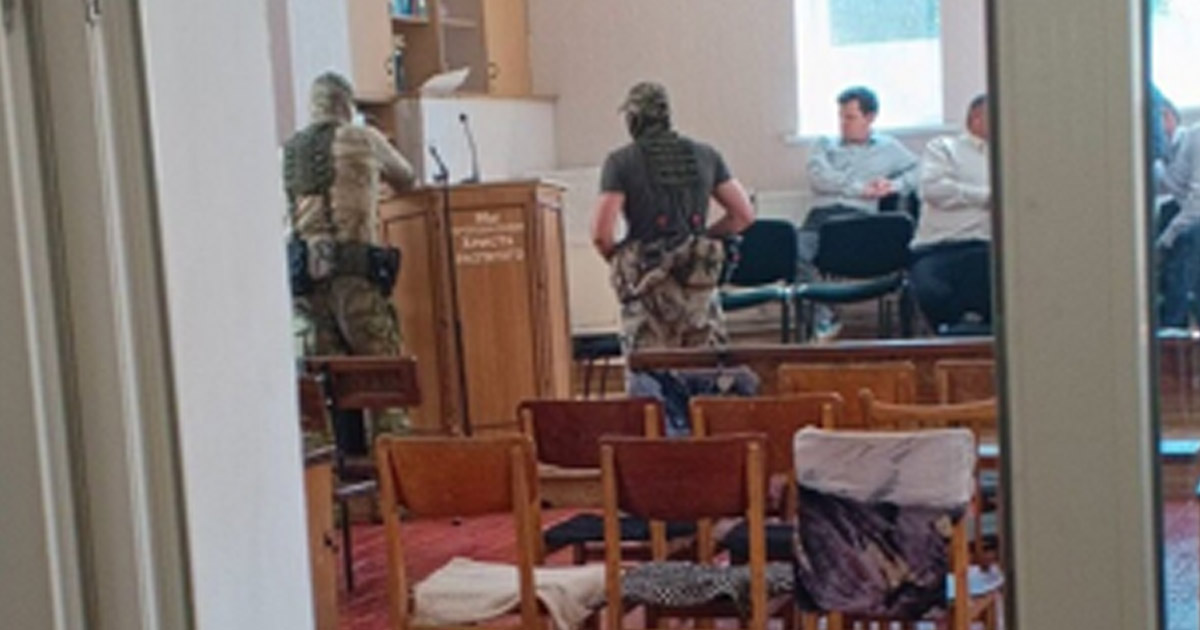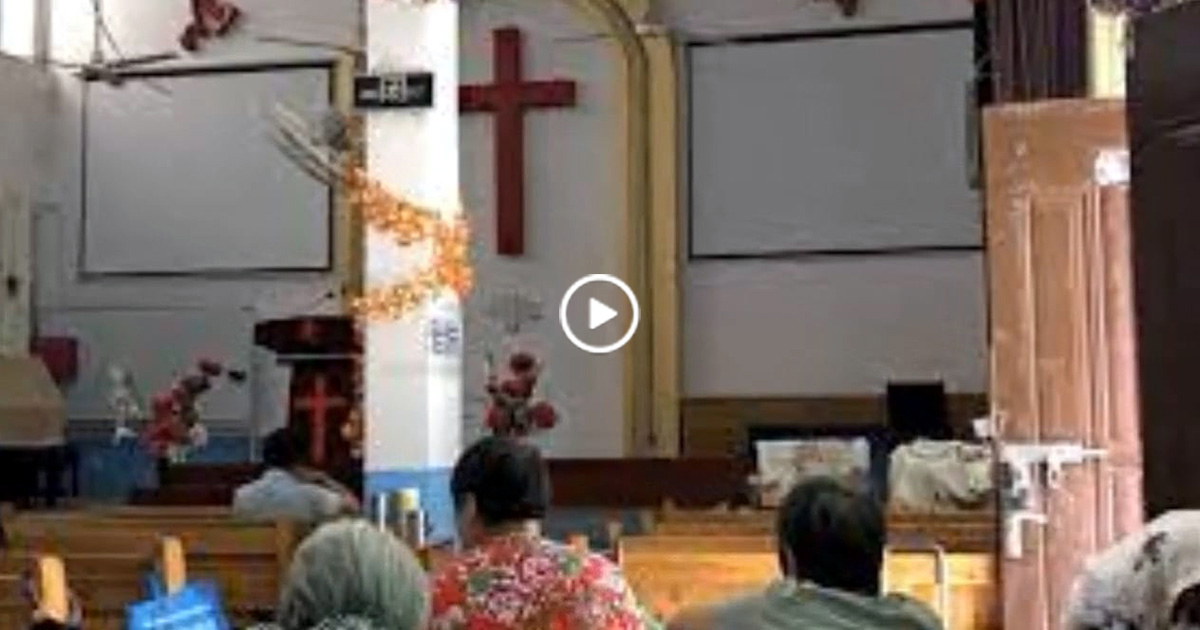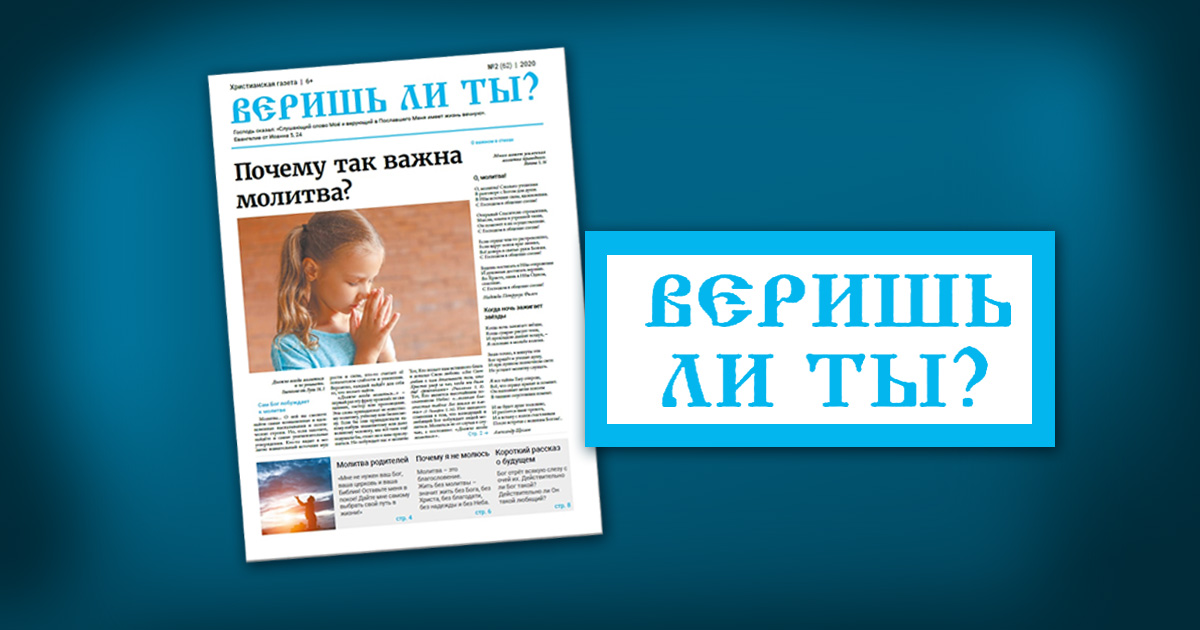In 1996, the church was given permission to build a facility. However, when construction was about to begin in 1999, it was blocked by officials who claimed that neighbouring residents opposed the project. Over the next several years, the church was offered a number of alternative sites; all of which were later retracted. In 2003 they purchased a facility but were then refused permission to renovate the building. Frustrated by the continual blockade they were facing, the church applied on May 20 for permission to conduct a week-long protest rally on Tverskaya Square, across from Moscow City Hall. When they did not receive a notification of objection from city authorities regarding the location within the required time, the church went ahead with the rally, beginning on May 30.
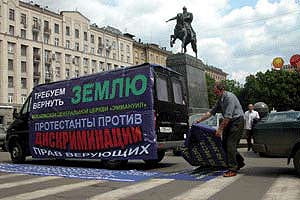 |
Emmanuel Pentecost Church Rally Tverskaya Square, Moscow Photos from Stetson University - Russian Religion News |
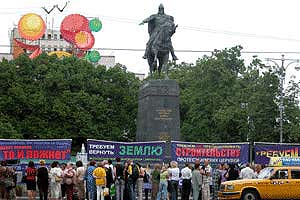 |
Despite the arrests and fines, Forum 18 reports that there may be progress as a result of the demonstration. The vice-chairman of Moscow's Department for Building Policy, Development and Reconstruction, Aleksandr Kosovan, has reportedly ordered that a site be found for the Emmanuel Church by June 30 and that the Moscow government must pay for all planning work. He has further ordered officials to approve documents for the reconstruction of a building purchased by Emmanuel.
Religious freedom in Russia has encountered various difficulties even after the fall of the Soviet Union. The Russian Orthodox Church has frequently been influential in blocking the non-Orthodox faith communities and local officials have often caused difficulties for churches, particularly unregistered groups. Forum 18 reported on June 9 that Russia's parliamentary religion committee is presently considering four amendments to the 1997 religion law. Included in these amendments would be the banning of large-scale religious meetings for unregistered organizations. They would also permit only "centralised religious organizations" to invite foreigners for religious work.
Pray that the difficulties facing the Emmanuel Church will be resolved quickly and without further incident. Pray that religious freedom will be applied consistently across Russia for all faith communities.
For more information on the situation facing Christians in Russia, click here.

